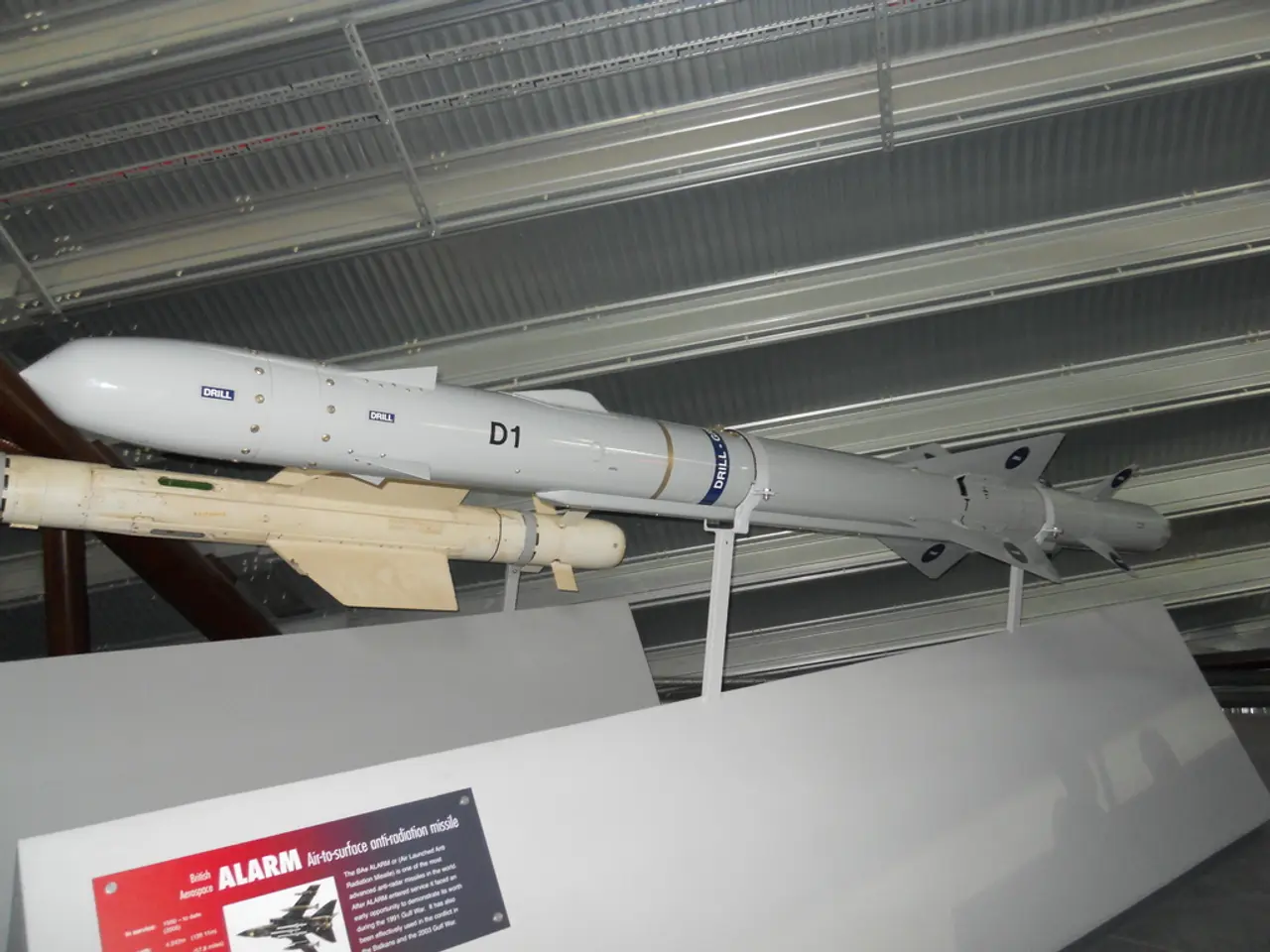North Korea's Embrace of Nuclear Weapons: An Examination of Kim's Presidency
In the dynamic landscape of East Asian politics, the question of nuclear armament has emerged as a contentious issue, with South Korea and Japan considering a shift from their traditional anti-nuclear stances. This potential move, however, comes with significant risks and consequences that could disrupt regional security, alliances, and global nuclear non-proliferation efforts.
A substantial portion of the Japanese population remains opposed to any form of nuclear armament, rooted in historical experiences. For South Korea, the desire for military autonomy has been linked to the question of nuclear freedom, but the feasibility of this long-held wish is uncertain.
The newly elected South Korean President, Lee, has promised to strive for a higher autonomy of the Korean military from the U.S., a move that could potentially lead to discussions about nuclear capabilities. Meanwhile, the North Korean regime insists that any negotiations must acknowledge North Korea as a nuclear power.
Trump's administration has previously attempted talks with North Korea, but these efforts have stalled due to U.S. demands for full denuclearization and expected resistance from Congress. However, Trump's desire for personal recognition might lead him to pursue talks with North Korea, despite the challenges.
South Korea's potential nuclear armament could instantly make the country a pariah, facing possible sanctions from the U.S. and the EU. Contractually, South Korea is bound by a bilateral 123 agreement with the U.S. not to engage in uranium enrichment above 20 percent or plutonium reprocessing without consent.
If South Korea were to withdraw from the Nuclear Non-Proliferation Treaty (NPT) to develop nuclear weapons, it would carry enormous risks. The move could fracture the alliance with the U.S., invite major security costs such as potential withdrawal of U.S. troops and economic and technological sanctions, and lead to regional security instability.
Japan's potential nuclear armament would be particularly sensitive given its unique history as the only country to have suffered atomic bombings. Pursuing nuclear weapons could strain Japan's relationship with its U.S. security umbrella and provoke strong opposition from China, which views Japanese nuclearization as a direct threat.
Regarding relationships with China and other countries, both Japan and South Korea developing nuclear weapons could be perceived as escalatory and destabilizing, prompting China to retaliate politically, economically, and militarily to counterbalance perceived threats. Russia has also warned of "grave consequences" if the U.S., Japan, and South Korea form a nuclear-based alliance targeting North Korea and regional neighbors.
In summary, nuclear armament by South Korea and Japan risks the collapse of key U.S. alliances, invites severe economic and diplomatic sanctions, intensifies regional arms races with North Korea and China, and could lead to heightened military confrontation and insecurity in East Asia.
It's important to note that public support for nuclear armament in South Korea is high, with up to 75% of respondents in Korean polls regularly expressing support. However, this high level of support may stem from a misunderstanding of the consequences.
As the region navigates these complex geopolitical challenges, it's crucial to maintain open dialogue and diplomatic efforts to preserve peace and stability in East Asia.
- The ongoing debate about nuclear armament in East Asia, specifically South Korea's possible shift in policy-and-legislation towards nuclear freedom, could lead to free discussions on nuclear capabilities and potentially alter the current general-news landscape.
- The potential consequences of war-and-conflicts in East Asia could significantly escalate if both South Korea and Japan decide to pursue nuclear armament, potentially leading to a wide array of political, economic, and militaristic responses from neighboring countries, further jeopardizing global peace and stability.








